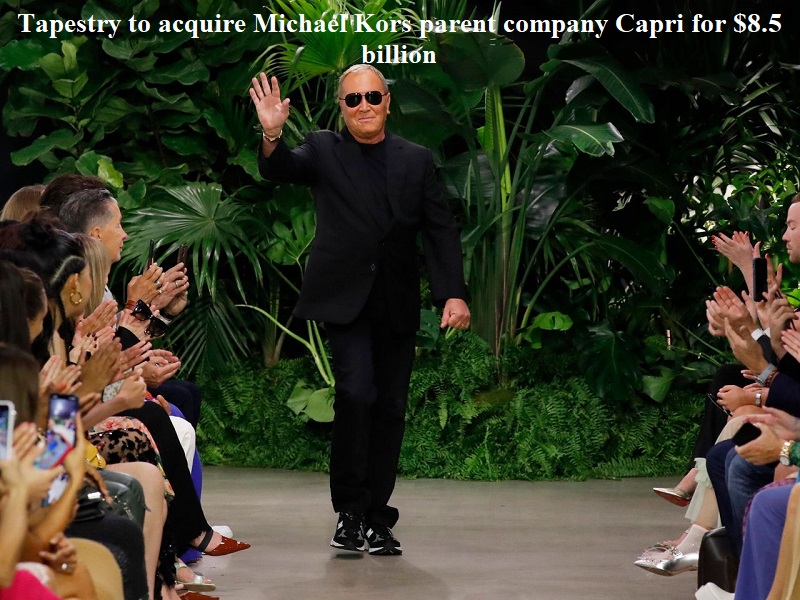
Tapestry, the US owner of lifestyle brands such as Coach and Kate Spade, has announced its intention to acquire Capri, the parent company of Michael Kors, for $8.5 billion. This merger aims to create a new global fashion powerhouse that can compete with European luxury giants.
The combined entity will include Tapestry’s Stuart Weitzman and Capri’s Jimmy Choo, along with Versace, a well-known name for Hollywood celebrities seeking to make a statement on red carpets. This expanded portfolio will offer a range of upscale brands specializing in shoes, handbags, and apparel, including Versace and Michael Kors.
The all-cash acquisition is designed to boost sales by leveraging customer data, expanding geographical reach, and achieving approximately $200 million in annual cost savings within three years of the deal’s completion, according to a joint press release.
Tapestry’s strong direct-to-consumer business is seen as an area of potential growth for Capri, which has more sales in Europe, while Tapestry is stronger in Asia.
Tapestry CEO Joanne Crevoiserat described the merger as creating a “powerful global luxury house,” emphasizing the combination of iconic brands with modern consumer engagement strategies to drive innovation, connectivity, and relevance.
Analysts noted that Capri’s brands are slightly higher on the luxury scale compared to Tapestry’s, targeting a slightly wealthier customer profile. The premium of 59 percent paid on Capri shares is considered a solid price, but there are concerns about how long it will take before Tapestry realizes significant gains, especially given the current state of the Michael Kors brand, which has been described as a declining “mess.”
The deal is expected to close in 2024, and there’s speculation that Tapestry might divest one of the non-core brands to expedite debt repayment.
This transaction allows Tapestry to adopt a strategy similar to European luxury powerhouses, focusing on a diverse portfolio of brands catering to different segments rather than trying to make individual brands ubiquitous.
While the acquisition has strategic logic, it comes with challenges, particularly in the case of the Michael Kors brand, which will require a complex and intricate turnaround effort, drawing on Tapestry’s experience with other brand revivals such as Coach and Kate Spade.
Overall, this merger aims to position Tapestry as a major player in the luxury fashion industry, but the path to success may require substantial efforts to rejuvenate and leverage the brands in its expanded portfolio.

Post Your Comments